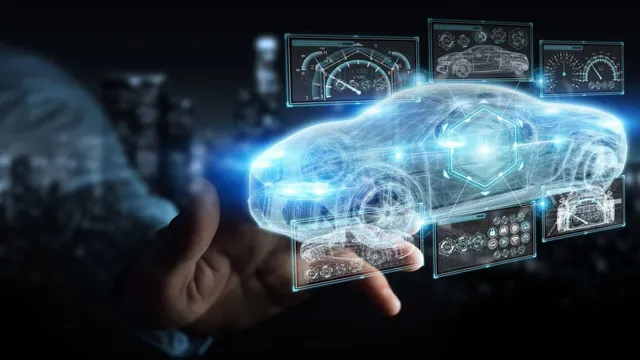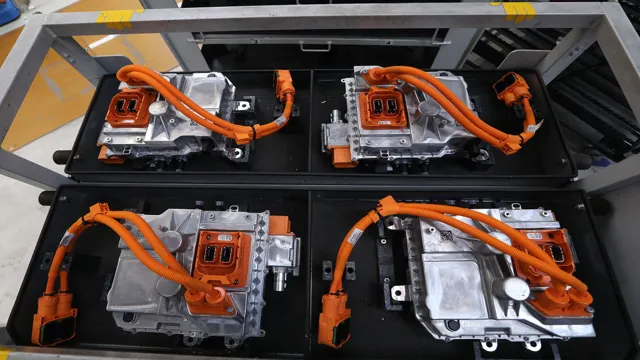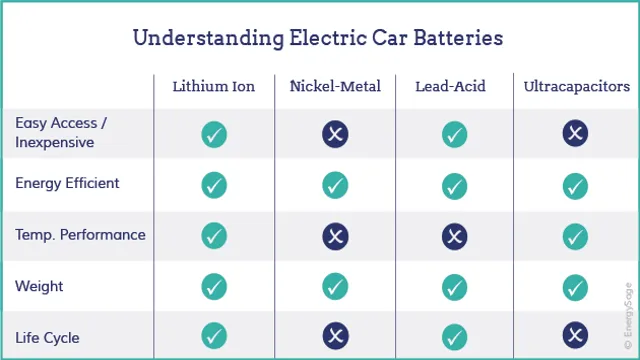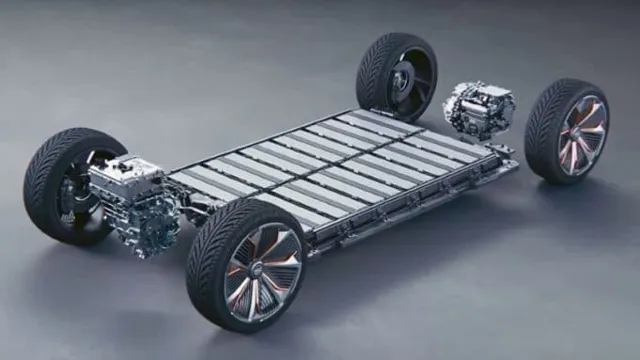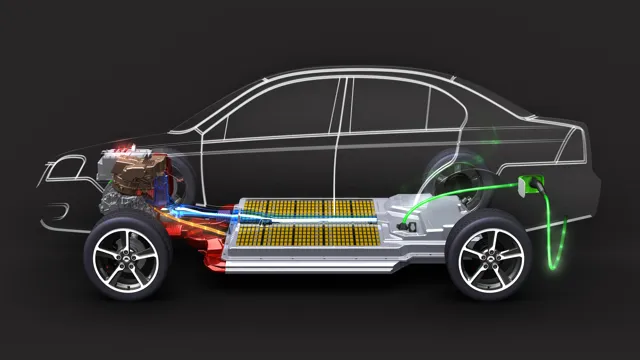Revolutionizing the Automotive Industry: Unearthing the Future of Electric Car Battery Technology
Electric car batteries are becoming a hot topic in the automotive industry. As electric vehicles become more mainstream, the battery technology that powers them is constantly evolving. The advancements in electric car batteries have opened up a new age in environmentally friendly transportation.
These batteries have now become a crucial component of modern electric vehicles, providing power for the propulsion of these high-tech machines. From longer ranges to faster charging times, electric car batteries have come a long way in just a few years. With all these improvements, it’s no wonder that electric cars are becoming a popular choice for people who want to reduce their carbon footprint and save money on fuel costs.
The question is, can electric car batteries keep up with the rapidly increasing demand? How do they work, and what future holds for them? Let’s delve into the fascinating world of electric car batteries and find out.
The current state of battery technology
The electric car battery technology of the future is an exciting prospect, with advancements being made every year. Currently, lithium-ion batteries are the most common type used in electric vehicles since they have high energy density and can be recharged quickly. However, the current state of battery technology is limited by its capacity and the distance electric cars can travel on a single charge.
Scientists are currently working on developing solid-state batteries, which would replace the liquid electrolyte in lithium-ion batteries with a solid one. This could potentially lead to higher energy density, increased safety, and longer lifespans for batteries. Additionally, research is being done on improving the production of lithium-ion batteries to reduce costs and increase efficiency.
As electric cars become more prevalent on the roads, battery technology is expected to continue to advance and improve, leading to even more efficient and sustainable vehicles.
Lithium-ion batteries dominate electric cars market
Lithium-ion batteries are the most popular battery technology currently used in electric cars, and it’s easy to see why. They provide high energy density and are lighter, smaller, and more efficient than their predecessors. They also have a longer life span and can be recharged quickly.
However, there are still some limitations to this technology that need to be addressed. One of the biggest challenges is their limited range, which means electric cars can only travel a certain distance before needing to recharge. Another issue is the high cost of production, which makes electric cars more expensive compared to traditional gasoline-powered cars.
These challenges require further research and innovation to overcome, such as increasing energy density or developing cheaper manufacturing methods. While lithium-ion batteries currently dominate the market, it is important to continue exploring different battery technologies that can provide even better performance and sustainability.
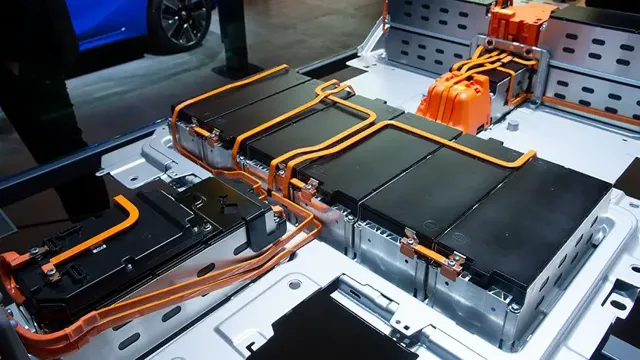
Limitations of lithium-ion batteries
Lithium-ion batteries are the most commonly used rechargeable batteries in electronic devices. These batteries are known for their high energy density, fast charging, and long cycle life. However, there are limitations to their use.
For instance, lithium-ion batteries have a finite lifespan and can only handle a limited number of charge-discharge cycles. They are also sensitive to high temperatures and can be prone to thermal runaway, leading to safety concerns. Currently, battery technology is still limited by the laws of physics, and there are no perfect solutions.
However, extensive research is underway to improve battery performance and develop new battery chemistries that can address these limitations. Today, scientists are exploring a range of options, including solid-state batteries, metal-air batteries, and lithium-sulfur batteries, that offer higher energy density and greater safety. Despite these challenges, lithium-ion batteries continue to be a reliable and cost-effective power source for many devices.
Advancements in battery technology
When it comes to the electric car battery technology of the future, there are some exciting advancements on the horizon. One of the most promising developments is the use of solid-state batteries, which are expected to offer greater energy density and faster charging times than the lithium-ion batteries currently used in most electric cars. In addition, researchers are exploring the use of new materials such as silicon and graphene to improve the performance of batteries even further.
These innovations could significantly increase the range of electric cars while also making them more affordable. Ultimately, the goal is to create a battery that can power an electric car for 500 or more miles on a single charge, and with the ongoing progress being made in battery technology, it’s only a matter of time before this becomes a reality. The future of electric cars is bright, and these advancements in battery technology will be a major part of making them a more viable option for drivers around the world.
Solid-state batteries: A next-generation solution
Advancements in battery technology have yielded promising results, especially in the development of solid-state batteries. These next-generation batteries offer several advantages over traditional lithium-ion batteries, including increased energy density, longer lifespan, improved safety, and faster charging times. Solid-state batteries also use a solid electrolyte instead of a liquid electrolyte, which makes them less vulnerable to leakage, swelling, and overheating.
This means they can be used in a wider range of applications from electric vehicles to smartphones. The advancement of solid-state batteries is essential for the shift towards a zero-emission future, as they offer a sustainable and reliable energy storage solution. With increased research and development, solid-state batteries are likely to become more widely available in the coming years, revolutionizing the way we power our lives.
Aluminum-based batteries: A cheaper and faster charging option
Battery technology has recently seen significant advancements, and aluminum-based batteries seem to be a promising option. Some of the benefits of these batteries include faster charging times, a longer lifespan, greater stability, and lower costs. Unlike traditional lithium-ion batteries, aluminum-based batteries use an anode made of aluminum, which is cheaper and more abundant than lithium.
This makes them a great option for developing countries where access to expensive materials is limited. The use of aluminum also allows for faster charging, making it possible to charge a battery in just a few minutes. Furthermore, these batteries are known for their stability and can withstand high temperatures without catching fire.
With the increasing demand for batteries in various fields, including renewable energy and electric vehicles, the advancement of aluminum-based batteries is sure to play a critical role in the future.
Lithium-sulfur batteries: High capacity, low cost
Advancements in battery technology have been instrumental in powering various electronic devices. Lithium-sulfur batteries have gained immense popularity due to their high capacity and low cost. Unlike traditional lithium-ion batteries, these batteries are lightweight and have a higher energy density.
They are considered to be the best alternative to lithium-ion batteries as they have double the energy storage capacity. Researchers have been investing their time and effort towards improving the performance of lithium-sulfur batteries. With these advancements, these batteries may soon be able to replace conventional batteries in various applications, such as electric vehicles and airplanes.
Moreover, the cost of production of these batteries is expected to be much lower than the conventional batteries, which is a major advantage for manufacturers. Therefore, with these advancements, lithium-sulfur batteries have the potential to revolutionize the energy industry and pave the way for a sustainable energy future.
Future of electric car batteries
Electric car battery technology is rapidly evolving, with a focus on improving efficiency, capacity, and affordability. Innovations in materials science and engineering are driving advances in battery chemistry, leading to longer-lasting and faster-charging batteries. Lithium-ion batteries, the most common type used in electric cars today, are expected to become even more efficient and compact as researchers develop new electrolytes and improve electrode materials.
In addition, solid-state batteries that replace the liquid electrolyte with a solid material could greatly improve safety and energy density. Other promising technologies include flow batteries, which can be recharged by replacing their electroactive fluids, and metal-air batteries that draw oxygen from the air to react with a metal anode. As these new technologies become refined, the future of electric car batteries is looking brighter than ever.
Development of longer-lasting and faster charging batteries
The development of longer-lasting and faster-charging batteries marks the promising future of electric cars. This advancement in technology will allow drivers to have more confidence in their cars’ capabilities, ultimately leading to an increased demand for electric vehicles. Currently, lithium-ion batteries are the most commonly used type of battery in electric cars, but companies are constantly searching for ways to improve their efficiency.
These batteries often require long charging times, making it inconvenient for drivers who are always on the move. However, with advances in battery technology, we can expect the production of batteries that can charge faster and hold more power, ultimately extending the range of electric cars. One example of a new type of battery being developed is the solid-state battery, which promises to be more energy-dense and have faster charge times than traditional lithium-ion batteries.
Solid-state batteries are built with a solid, conductive material, allowing for more efficient energy transfer, and they may be the future for electric cars. The rise of electric vehicles is inevitable with the development of longer-lasting and faster-charging batteries, and the sooner we embrace this technology, the quicker we can reduce the carbon footprint of our transportation choices.
Shift towards renewable energy for battery production
As the world shifts towards renewable energy, the future of electric car batteries is looking bright. With advancements in technology, battery production will become more efficient and cost-effective. In fact, there has been a rapid increase in the production of lithium-ion batteries, which are used in electric vehicles.
To meet the growing demand, renewable energy sources such as wind, solar and hydro power are being used to produce these batteries. This shift towards renewable energy is not only environmentally friendly, but it also ensures a stable supply of energy for battery production. By using sustainable energy sources in battery manufacturing, we can reduce our carbon footprint and contribute towards a greener future.
So, let’s embrace this shift towards renewable energy and make electric car batteries the future of sustainable transportation.
Conclusion: Exciting times ahead for electric car battery technology
In the not-too-distant future, electric car battery technology will make our current batteries seem like relics from the stone age. These new batteries will be capable of holding more power, recharging more quickly, and lasting longer than ever before. They will make range anxiety a thing of the past and transform the way we think about transportation.
So buckle up and get ready for a wild ride, because the future of electric car batteries is bright!”
FAQs
What advancements in electric car battery technology can we expect to see in the future?
There are a few promising advancements in electric car battery technology that we can expect to see in the future. These include solid-state batteries, which offer higher energy density and faster charging times, and lithium-sulfur batteries, which could potentially offer even higher energy density at a lower cost.
Will the adoption of electric cars eventually lead to a decrease in the cost of battery technology?
Yes, as more and more electric cars are produced, the cost of battery technology is expected to decrease due to economies of scale and advancements in manufacturing techniques.
How long will electric car batteries typically last before needing to be replaced?
The lifespan of an electric car battery can vary depending on factors such as the quality of the battery, how often it is charged, and the conditions it is exposed to. However, most electric car batteries are designed to last for at least 100,000 miles before needing to be replaced or reconditioned.
Is there a limit to how much energy electric car batteries can store?
While there is currently a limit to how much energy can be stored in a single battery cell, advancements in technology are allowing for higher energy density and the ability to connect multiple cells together to create larger battery packs. As a result, electric car batteries are becoming more and more powerful with each new generation.
